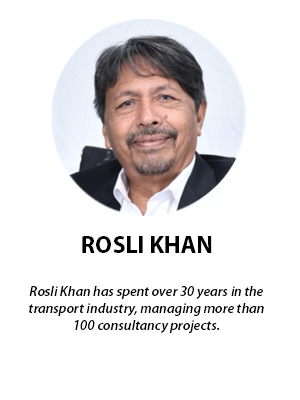
Government policy currently permits private sector entities to propose new toll roads, primarily targeting areas with expected high traffic volume.
Many of these unsolicited proposals may not align with the country’s highway masterplan network. Instead, the aim may be to capture traffic for toll collection purposes.
Such an approach is not optimal for regional development, as proponents of such proposals often prioritise urban areas with high car ownership and usage.
Consequently, such highways tend to be concentrated in the Klang Valley, while other parts of the country are overlooked or neglected, hindering opportunities for their development.
This unbalanced development trend was highlighted by Yang di-Pertuan Agong Sultan Ibrahim in a recent speech.
The king said there was a disproportionate focus on the Klang Valley and called for equitable development beyond Kuala Lumpur and Putrajaya to mitigate against mass migration to urban centres and alleviate traffic congestion.
The overconcentration of projects in the Klang Valley has led to significant rural-urban migration, straining infrastructure, housing and public services. Traffic congestion in the Klang Valley still remains a major concern.
Cornered by toll roads
Many townships and residential areas in the Klang Valley have become targets for more toll roads, driven by a desire on the part of the highway developers to cover expenses and generate profits.
Despite public discontent, the government tends to support toll road developers in such matters, disregarding community concerns.
This inevitably gives rise to speculation suggesting that government officials, politicians and civil servants may have vested interests in approving toll road projects.
On top of that, toll companies frequently hire ex-civil servants or former politicians, fostering a culture of favouritism.
Thus far, we have seen no action taken by the government to check against such ethical breaches.
Toll companies thrive financially, with government-linked companies subscribing to their bonds, known locally as “sukuk”, to finance toll road construction.
Toll concession agreements may also have been extended to offset revenue shortfalls from toll collections.
Key areas for government action
- Government compensation: The government’s tendency to compensate toll companies for cancelled projects raises concerns, especially when taxpayers bear the burden of projects initiated by private entities.
- Opacity of compensation clauses: Hidden compensation clauses undermine transparency in governance, potentially shielding questionable financial arrangements. Public funds should be subject to rigorous scrutiny and transparency measures.
- Questionable fund management: Concealing compensation clauses under the Official Secrets Act (OSA) contradicts principles of accountable governance. Public funds should be managed transparently to foster trust and ensure responsible allocation.
Addressing these issues is crucial for better management of toll road development and improving policies.
While corporate investment and profitability are important, they should not come at the expense of the public.
Emphasising public transport and supporting infrastructure development outside the Klang Valley, as suggested by the king, can promote equitable development and mitigate negative consequences. - FMT
The views expressed are those of the writer and do not necessarily reflect those of MMKtT.


No comments:
Post a Comment
Note: Only a member of this blog may post a comment.